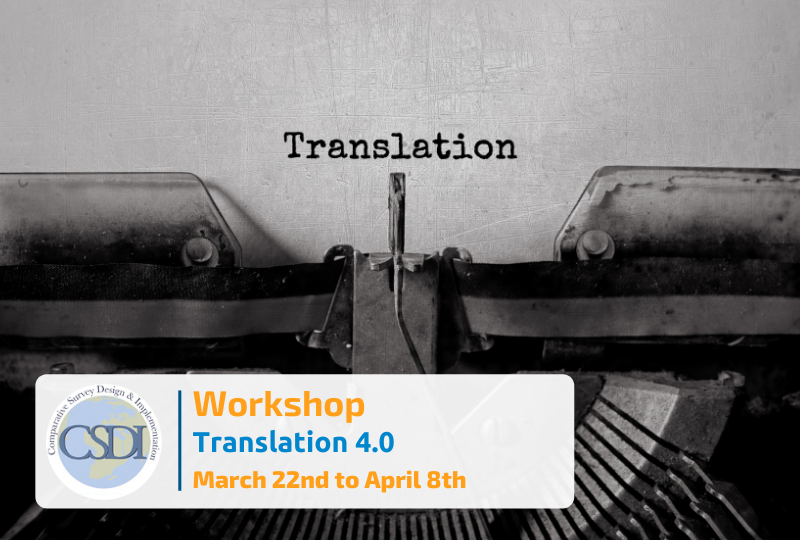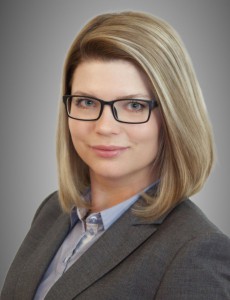
- Social Sciences & Humanities Open Cloud
Translation 4.0 - 2021 CDSI Workshop

Date:
22 March 2021 - 08:00 to 08 April 2021 - 18:00
Location:
Online
This presentation is a part of the session about Survey translation in the digital age, that has been accepted for the 2021 CSDI Workshop.
Who is this for?
This presentation aimed at all academics and practitioners from the fields of Sociology, Linguistics and Translation Studies, who are interested in international comparable surveys, survey research and methods, translation of questionnaires, and machine translation.
When
From March 22nd to April 8th, registered attendees will be able to view pre-recorded presentations and submit questions to the author(s) via a discussion forum.
Brief description
In recent years, machine translation has evolved from rule-based and statistical to neuronal translation engines based on deep learning. It seems that any translation can now be provided quickly, effortlessly, and in apparently good quality without any human intervention. As part of the EU-funded SSHOC project, machine translation was integrated into the workflow of the Harkness TRAPD model (double translation & team review) to explore its potential and use for survey research: In four team set-ups (2 x English-Russian/2 x English-German), one of the initial translations was replaced by machine translation and post-editing, i.e., the revision of machine translated text.
The author will zoom into the translation step (‘T’) of the TRAPD model to measure the usability of machine translation in the context of questionnaire translation, since usability is one of the key factors for increasing the adoption of machine translation. Three dimensions of usability, i.e. effectiveness, efficiency, and satisfaction, will be analysed in this regard, taking up a categorisation of the ISO 9241 usability standards. Effectiveness will be measured by analysis of the errors produced by a machine engine. Efficiency will be analysed by comparison of effort needed to produce a text either from a translator or a post-editor perspective. Satisfaction will be captured by a post-task questionnaire. The presentation focuses on work in progress for the analysis of three usability dimensions from a user-centered perspective.
Speaker

Veronika Keck is a research associate and a communications manager at GESIS – Leibniz Institute for the Social Science in the department Survey Design and Methodology. She is working in the ESS and SSHOC projects on translation process for international surveys. She holds a BA (2014) and MA (2018) in Translation studies and Conference Interpreting (German, Russian, English) from the University of Mainz.
Presentations:
